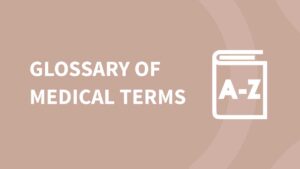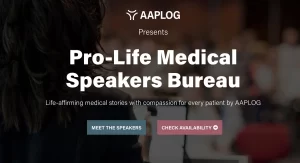Continuing their negligent support of harmful abortion practices, ACOG released new clinical guidance for physicians on self-managed abortions (SMA) on November 14th. Their Committee Statement 13: Self-Managed Abortions purports to address “what ob-gyns and other health care professionals should know to care for patients and reduce harm.” While we would agree with this statement – women should be fully informed about the harms of drug-induced abortions and be provided with the best care possible after taking these drugs (especially if experiencing complications) – ACOG completely misses the point as the authors state “that the greatest risk of harm related to self-managed abortion for patients is the risk of criminalization.”
While claiming that women may need to pursue SMA due to state pro-life laws that prevent abortion, ACOG has been advocating for unsupervised drug-induced abortions since well before the Dobbs decision. In fact, legal restrictions on abortion are listed as only one of 14 reasons why women choose self-managed abortion.
Women deserve accurate information about the risks of the abortion drug mifepristone or about other potential methods of SMA (such as self-harm through physical trauma or uterine instrumentation) and support, instead, to make healthy choices for themselves and their child. And yet, this new document encourages healthcare professionals to focus on reducing risk of criminalization rather than providing high-quality comprehensive care or even basic standards of care that would be applied in any other circumstance.
Perhaps one of the most concerning sections instructs medical professionals to not ask any questions about what led to a patient’s presenting symptoms when she presents with complications after SMA:
“Questions and evaluation should be based on the patient’s presenting symptoms in the context of a recent pregnancy but do not need to delve into the circumstances that lead them to seek care… There is not a clinical need for the health care professional to probe further to ask whether this is the result of an SMA. Furthermore, health care professionals should be aware that, if a patient voluntarily discloses an SMA, documenting and reporting the information can cause harm to the patient as well as the health care professionals involved in the patient’s care.”
This should concern every medical professional who actually cares about women. When a patient presents with vaginal bleeding or signs of a uterine infection, what drugs she took, what (if anything) was used to instrument her uterus, etc., are essential pieces of information to ensure that we treat her appropriately and effectively. Not having those crucial pieces of information could lead to missing critical diagnoses such as a uterine perforation or a rare infection.
ACOG also demonstrates that they care more about obfuscating laws than providing excellent care for patients through directing clinicians to be either negligent or dishonest in their documentation:
“Health care professionals should consider how the information they request and subsequently document may be putting their patients and themselves at risk of criminalization. It is recommended to document only information that is necessary for the ongoing care of a patient. Health care professionals should consider whether it is imperative to document items such as the last menstrual period, which later could be used to corroborate a pregnancy. Other information, such as ultrasonographic findings, also could be used in attempts at criminalization. Therefore, health care professionals should be thoughtful in determining what tests are indicated in their evaluation of patients presenting for care. Tests that may be part of a ‘routine’ evaluation may not actually be necessary and could prove harmful; thus, it is important to approach an evaluation with the risk of criminalization in mind.”
Their position on having actual data on pregnancy outcomes (not just abortion) so that we can continue to improve care for our patients is clear as they encourage their members to advocate against ANY mandated reporting for pregnancy-related outcomes. This new document makes it clear where ACOG’s priority lies – unmitigated access to induced abortion for any reason and without any oversight, at the expense of actual healthcare for women and better data collection to improve outcomes for all patients.
Thankfully, AAPLOG provides an evidence-based alternative with helpful information as we counsel patients that are contemplating drug-induced abortion. Our CO #9 “Dangers of Relaxed Restrictions on Mifepristone” gives clinicians excellent guidance on information to discuss with patients as well as crucial information on what complications women might present with after a mifepristone abortion.






